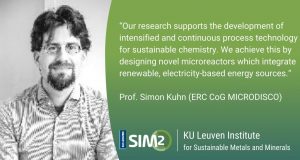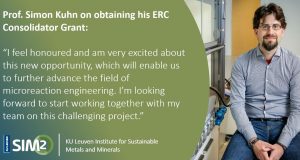– Roberta Manno, University of Zaragoza
As my co-worker Mohammed explained in the last blog, the first birthday of the COSMIC team was celebrated during the meeting in March. Results, challenges, observations and problems were expounded to all the members. As PhD students, we are usually focused only on experiments, publications, patents and so on; but to be a good scientist that is not enough. Do you want to success?
Well, first, you HAVE to go outside of your comfort zone. After the first year of your PhD you are more or less experts of your host working group. Everything starts to be familiar, like co-workers, equipment, supervisors, language or all the secrets of your host town (for example where you can find good beer in order to find consolation after bad results). If you want more, the unique alternative will be to look around you. Many of the famous Nobel prize winners moved between different countries, searching for collaborators, suggestions and experts. For sure they were genius, but nobody underlines how their motivation forced them to overcome their comfort zone. Imagine yourself during the period of the World War II, you are a woman grown up in a sexist society and furthermore you were forced to exile from your native country because of racist laws. The easier alternative is to accept the rule imposed to you. But the Italian Nobel prize winner Rita Levi Montalcini fought to reach her freedom, to study medicine with other men, to dedicate all her life to science. This determination helps everyone overcome the Pillars of Hercules.

The European Training Networks offer the possibility to create a team, where universities, researchers and companies work all together to analyse pros and cons of innovative technologies. The idea of everyone can be seen as part of a big puzzle, focusing not only on theoretical aspects but also on the possibility to scale-up the system in an industrial reality.
An infinity of tools can help the PhD students of today to become good scientists, from international conferences to social media such as LinkedIn, Instagram, Facebook, YouTube, Twitter or Research Gate. So don’t look for excused… Open your mind!




